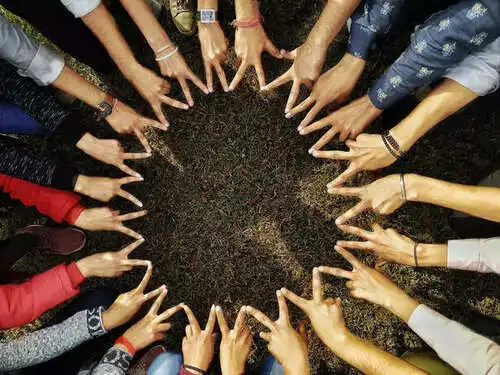Friendship used to mean forever. That was the lie. The belief that once someone laughed with you in a classroom or cried with you on a hostel bed, they were now tied to your life with invisible string. But people grow. Sometimes in opposite directions. And if you’re honest, many of your friendships didn’t die, they simply reached the edge of their purpose. In India, where relationships are often mistaken for lifelong obligations, friendship becomes a strange dance of guilt, habit, and endurance. But letting go doesn’t always mean failure. Sometimes it means you’re finally listening to your life.
1. We Mistook Proximity for Compatibility
Friends of convenience aren’t always friends of alignment.
Most of our early friendships weren’t born out of shared values, they were born out of shared benches, shared tuitions, shared trauma. You were friends because you were around each other, not necessarily because you deeply understood one another. And for a while, that worked. Until you started growing into yourself.
When you begin to ask bigger questions, Who am I becoming? What do I stand for? What do I tolerate? some friendships naturally fall away. Not out of hate. Just misalignment. You realize that just because someone once knew your secrets doesn’t mean they deserve access to your healed self.
2. Loyalty is Noble, But It’s Not a Life Sentence
Loyalty shouldn’t come at the cost of your peace.
In Indian culture, we’re conditioned to stay. In families. In friendships. In situations that stopped feeling safe a long time ago. Because leaving is seen as betrayal. Because “they were there for you” becomes a lifetime invoice. But here’s the truth no one told us: you can outgrow someone and still be grateful for what they gave you.
You can walk away with love, just not with access. Friendship isn’t about forever. It’s about presence. And if presence turns into pressure, the relationship isn’t friendship anymore. It’s emotional debt.
3. You Don’t Lose Friends. You Lose Versions of Yourself
Growth means shedding past selves and people with them.
Every friendship marks a chapter. Some were there during your insecure years. Your broken years. Your survival-mode years. They knew you when you didn’t even know yourself. But healing changes your frequency. Suddenly, silence doesn’t feel awkward. Boundaries become non-negotiable.
You start choosing truth over convenience. And not everyone will come with you on that path. That doesn’t mean you’ve become distant or selfish. It means you’re becoming whole.
4. Real Connection Can’t Be Forced. And Shouldn’t Be Faked
Nostalgia isn’t enough to keep shallow friendships alive.
We live in an age of constant contact and minimal connection. We like each other’s posts. Send birthday wishes. Share memes. But do we talk? Deeply, honestly, vulnerably? So many friendships today are kept alive artificially, out of nostalgia, or politeness, or fear of confrontation.
But a friendship that requires you to shrink, to pretend, or to keep replaying an old version of yourself, isn’t friendship. It’s emotional theatre. And you’re allowed to step off the stage.
5. Some Friendships End Because Healing Has Begun
Healing reveals who benefited from your brokenness.
This one’s hard. Because some of the people you love most will not survive your healing. They needed you broken. Because your brokenness served them, you were more available, more agreeable, easier to control.
But healing brings clarity. You start saying no. You stop over-explaining. You don’t show up just because you always did. And people mistake that for coldness. But it isn’t coldness. It’s consciousness.
The Point Was Never to Keep Everyone. The Point Was to Keep Evolving
You don’t owe anyone your forever. What you owe is your truth. And if your truth has changed, if you’ve changed, it’s okay to let old friendships rest in peace. Not every goodbye needs to come with bitterness. Some can be quiet acknowledgements that this was beautiful and now it’s done. And maybe that’s what mature friendship really looks like. Not holding on for the sake of history, but choosing alignment over attachment. Depth over duration. Peace over performance.
So, if you’ve been grieving friendships that faded… maybe don’t see it as a loss. Maybe see it as space for new people, new energy, and the version of you that’s no longer trying to be everything to everyone. You’re not becoming colder. You’re becoming clearer. And in the end, that’s not the death of connection. It’s the beginning of the kind that actually matters.
